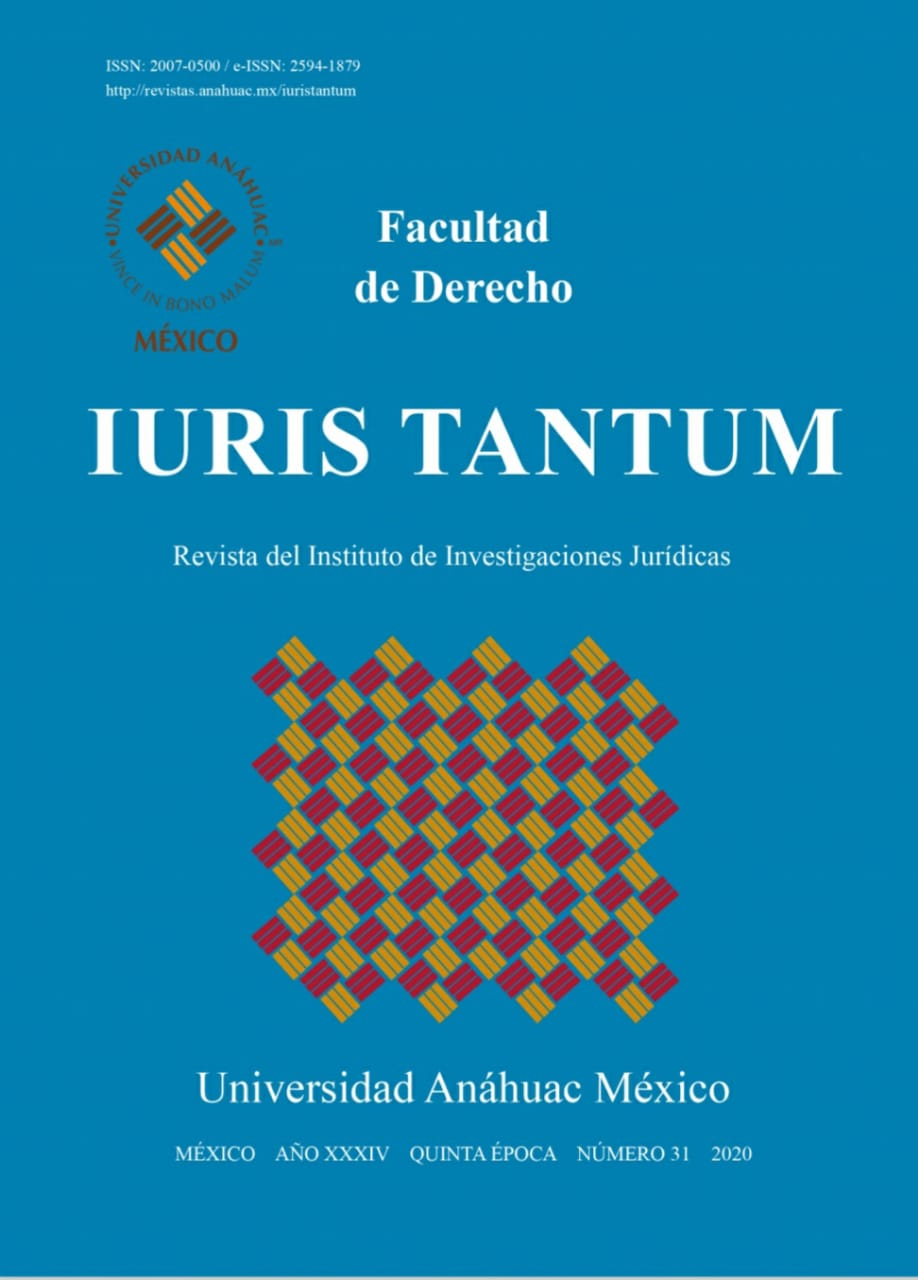SOVEREIGNTY AND MODERN STATE
Main Article Content
Abstract
The central aim of this essay is to reflect upon the origin and evolution of the concept of sovereignty, in order to highlight the profound influence that its theoretical development had on the legal and political structuration of the modern state. In order to achieve this purpose, the economic and political structures of the feudal order that preceded the formation of the modern state are characterized, as well as the ideological influence that the classical world had on the modern conception of the state, that emerged during the historical framework of the renaissance, as a unitary and centralized territorial corporation provided with an immanent political legitimacy grounded on the political community. After establishing the structural and ideological context that determined its historical emergence, the transformation of the concept of sovereignty is analyzed through the doctrines and theories developed by the main intellectual vindicators of both, the absolutist-monarchical state and the liberal-democratic state. The central arguments regarding state sovereignty introduced by Nicholas Machiavelli, Jean Bodin, Thomas Hobbes, Jean-Jacques Rousseau, Emmanuel Sieyes and Emmanuel Kant are contrasted in order to characterize the process of historical evolution experienced by a theoretical concept that, with the passage of time, transformed itself from a legal and philosophical doctrine centered on the strategic need to concentrate political power on the monarchical institution in order to unite and pacify the emerging nations of western Europe; into a key component of a comprehensive political and constitutional theory of the modern state, centered on the strategic need to establish effective institutional and legal limits against the emergence of any form of absolute governmental power, in order to protect and guarantee the fundamental rights and liberties of subjects and citizens. Throughout its development, the essay places special emphasis in characterizing the manner in which, within different historical forms of the modern state, the changing concept of sovereignty offered different theoretical answers to the complex ethical, political and legal problems posed by the origin, nature, entitlement and legitimacy of supreme power.
Downloads
PLUMX Metrics
Article Details
Iuris Tantum is distributed under international Creative Commons Attribution-NonCommercial-ShareAlike 4.0 International License.
The author keeps the property rights with no restriction whatsoever and guarantees the magazine the right to be the first publication of the work. The author is free to deposit the published version in any other medium, such as an institutional archive or on his own website.
References
BOBBIO, Norberto (1991). Thomas Hobbes. Barcelona: Ediciones Paradigma.
BODIN, Jean [1576] (2006). Los Seis Libros de la República. Madrid: Tecnos
CARVAJAL CORDÓN, Julián (1999). Moral, Derecho y Política en Immanuel
Kant. Cuenca: Ediciones de la Universidad de Castilla-La Mancha.
CHEVALLIER, Jean Jacques (1974). Los Grandes Textos Políticos. Madrid:
Aguilar.
DE LA CUEVA, Mario (1994). La Idea del Estado. México: UNAM.
EBENSTEIN, William (1969). Great Political Thinkers: Plato to the Present.
New York: Holt, Rinehart and Winston.
FRANKLIN, Julian H. (1992). Bodin: On Sovereignty. Cambridge: Cambridge
University Press.
GOUREVITCH, Victor (1997). Rousseau: The Discourses and Other Earlier
Political Writings. Cambridge: Cambridge University Press.
GOUREVITCH, Victor (1997). Rousseau: The Social Contract and Other Later
Political Writings. Cambridge: Cambridge University Press.
HILTON, Rodney H. (1988). Conflicto de Clases y Crisis del Feudalismo. Barcelona:
Editorial Crítica.
HINSLEY, F.H. (1972). El Concepto de Soberanía. Barcelona: Labor.
HOBBES, Thomas [1651] (1989). Leviatán. Madrid: Alianza.
JELLINEK, Georg (2004). Teoría General del Estado. México: FCE.
LOCKE, John [1689] (2003). Ensayo Sobre el Gobierno Civil. México: Editorial
Porrúa.
MAÍZ, Ramón (2007). Nación y Revolución: La Teoría Política de Emanuel
Sieyés. Madrid: Tecnos.
MURPHY, Jeffrey G. (1970). Kant: The Philosophy of Right. London: Macmillan.
MAYER, J.P. (1994). Trayectoria del Pensamiento Político. México: FCE.
ORWIN, Clifford y Nathan Tarcov (1997). The Legacy of Rousseau. Chicago:
University of Chicago Press.
REISS, H.S. (1991). Kant: Political Writings. Cambridge: Cambridge University
Press.
ROUSSEAU, Jean Jacques [1762] (2008). El Contrato Social. Valladolid: Editorial
Maxtor.
SABINE, George H. (2009). Historia de la Teoría Política. México: FCE.
SIEYÈS, Emanuel [1789] (1989). ¿Qué es el Tercer Estado? México: UNAM.
SOMMERVILE, Johann P. (1991). Filmer: Patriarcha and Other Writings. Cambridge:
Cambridge University Press.
SONENSCHER, Michael (2003). Sieyès: Political Writings. Indianapolis: Hackett
Publishing Company.
TUCK, Richard (1996). Hobbes: Leviathan. Cambridge: Cambridge University
Press.
ZARKA, Yves Charles (1997). Hobbes y el Pensamiento Político Moderno. Barcelona:
Herder.

